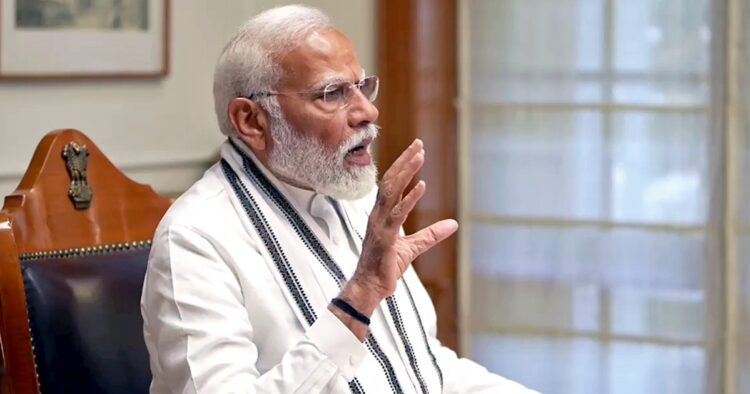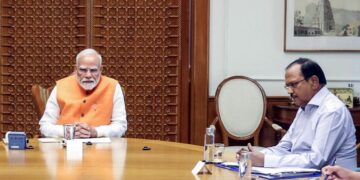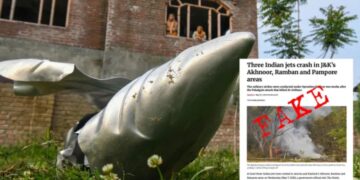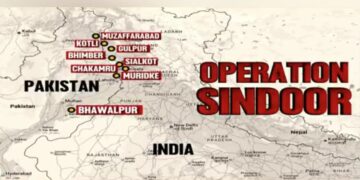Prime Minister Narendra Modi began his post-election work on Sunday by holding back-to-back meetings to address the effects of Cyclone Remal on several northeastern states and the ongoing heatwave situation across the nation.
Cyclone Remal’s Devastation
In the first meeting, Prime Minister Modi focused on the severe damage caused by Cyclone Remal. The cyclone resulted in the loss of human lives, and many homes and properties were destroyed due to widespread landslides and flooding.
The Prime Minister expressed his concern over the extensive damage and assured that the central government would provide full support to the affected states. He instructed the home ministry to closely monitor the situation and regularly review the progress to ensure that necessary assistance is provided for restoration and recovery efforts.
Prime Minister Modi emphasized the central government’s commitment to helping the states recover from the cyclone’s impact. He urged the home ministry to keep a vigilant watch on the situation and to conduct regular reviews to provide timely assistance. This support will be crucial for rebuilding homes, infrastructure, and ensuring the safety of the affected communities.
Chaired meetings to review the situation in the wake of heatwaves and post cyclone flood situations in different parts of the nation. Took stock of the efforts underway to assist those affected by these adversarial conditions. pic.twitter.com/1uDcc4ONX0
— Narendra Modi (@narendramodi) June 2, 2024
Heatwave and Monsoon Preparedness
In a separate meeting, Prime Minister Modi reviewed the ongoing heatwave situation in various parts of the country. He was informed that the heatwave is likely to persist in regions such as Rajasthan, Gujarat, and Madhya Pradesh.
However, there is a positive outlook for the monsoon season, with expectations of normal to above-normal rainfall in most parts of the country, except for parts of Peninsular India which might experience below-normal rainfall.
Addressing the heatwave and upcoming monsoon, Prime Minister Modi stressed the importance of regular drills for preventing and handling fire incidents. He instructed that fire audits and electrical safety audits of hospitals and other public places must be conducted regularly to ensure safety.
In addition, he emphasized the need for maintaining firelines in forests and making productive use of biomass to prevent fire hazards.
Proactive Measures for Safety
The Prime Minister’s Office highlighted Modi’s directives for proactive measures to enhance safety and preparedness. Regular drills, audits, and maintenance plans are essential to mitigate risks and ensure the safety of citizens during extreme weather conditions.
The government’s focus on these measures demonstrates a commitment to protecting lives and property and enhancing the country’s disaster preparedness.
Prime Minister Modi’s swift actions and detailed review meetings highlight the government’s dedication to addressing natural disasters and ensuring the safety and well-being of the people.
The support for cyclone-affected states and the proactive measures for heatwave and monsoon preparedness reflect a comprehensive approach to managing and mitigating the impacts of extreme weather events.

















Comments